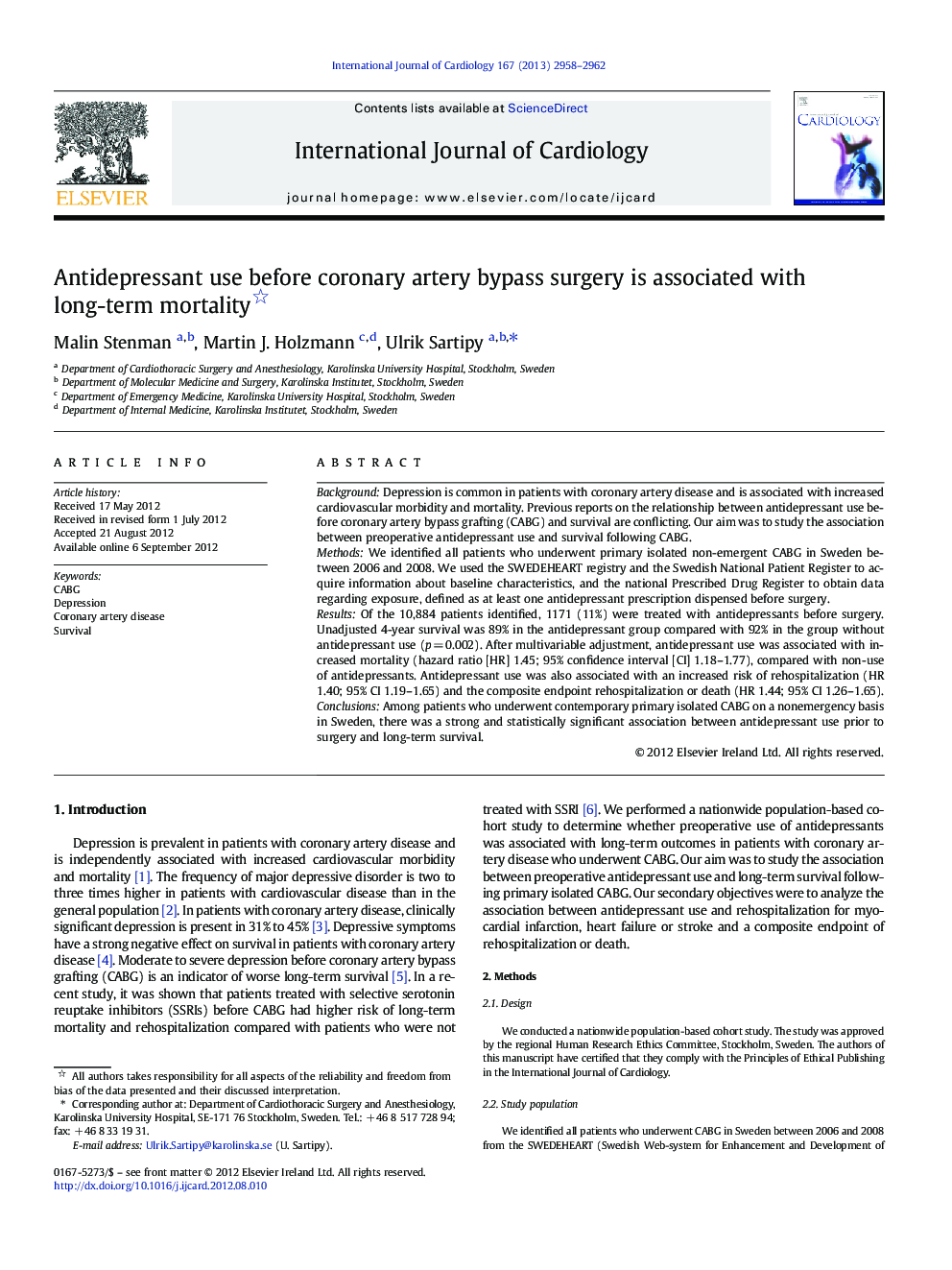| کد مقاله | کد نشریه | سال انتشار | مقاله انگلیسی | نسخه تمام متن |
|---|---|---|---|---|
| 5974674 | 1576212 | 2013 | 5 صفحه PDF | دانلود رایگان |

BackgroundDepression is common in patients with coronary artery disease and is associated with increased cardiovascular morbidity and mortality. Previous reports on the relationship between antidepressant use before coronary artery bypass grafting (CABG) and survival are conflicting. Our aim was to study the association between preoperative antidepressant use and survival following CABG.MethodsWe identified all patients who underwent primary isolated non-emergent CABG in Sweden between 2006 and 2008. We used the SWEDEHEART registry and the Swedish National Patient Register to acquire information about baseline characteristics, and the national Prescribed Drug Register to obtain data regarding exposure, defined as at least one antidepressant prescription dispensed before surgery.ResultsOf the 10,884 patients identified, 1171 (11%) were treated with antidepressants before surgery. Unadjusted 4-year survival was 89% in the antidepressant group compared with 92% in the group without antidepressant use (p = 0.002). After multivariable adjustment, antidepressant use was associated with increased mortality (hazard ratio [HR] 1.45; 95% confidence interval [CI] 1.18-1.77), compared with non-use of antidepressants. Antidepressant use was also associated with an increased risk of rehospitalization (HR 1.40; 95% CI 1.19-1.65) and the composite endpoint rehospitalization or death (HR 1.44; 95% CI 1.26-1.65).ConclusionsAmong patients who underwent contemporary primary isolated CABG on a nonemergency basis in Sweden, there was a strong and statistically significant association between antidepressant use prior to surgery and long-term survival.
Journal: International Journal of Cardiology - Volume 167, Issue 6, 10 September 2013, Pages 2958-2962